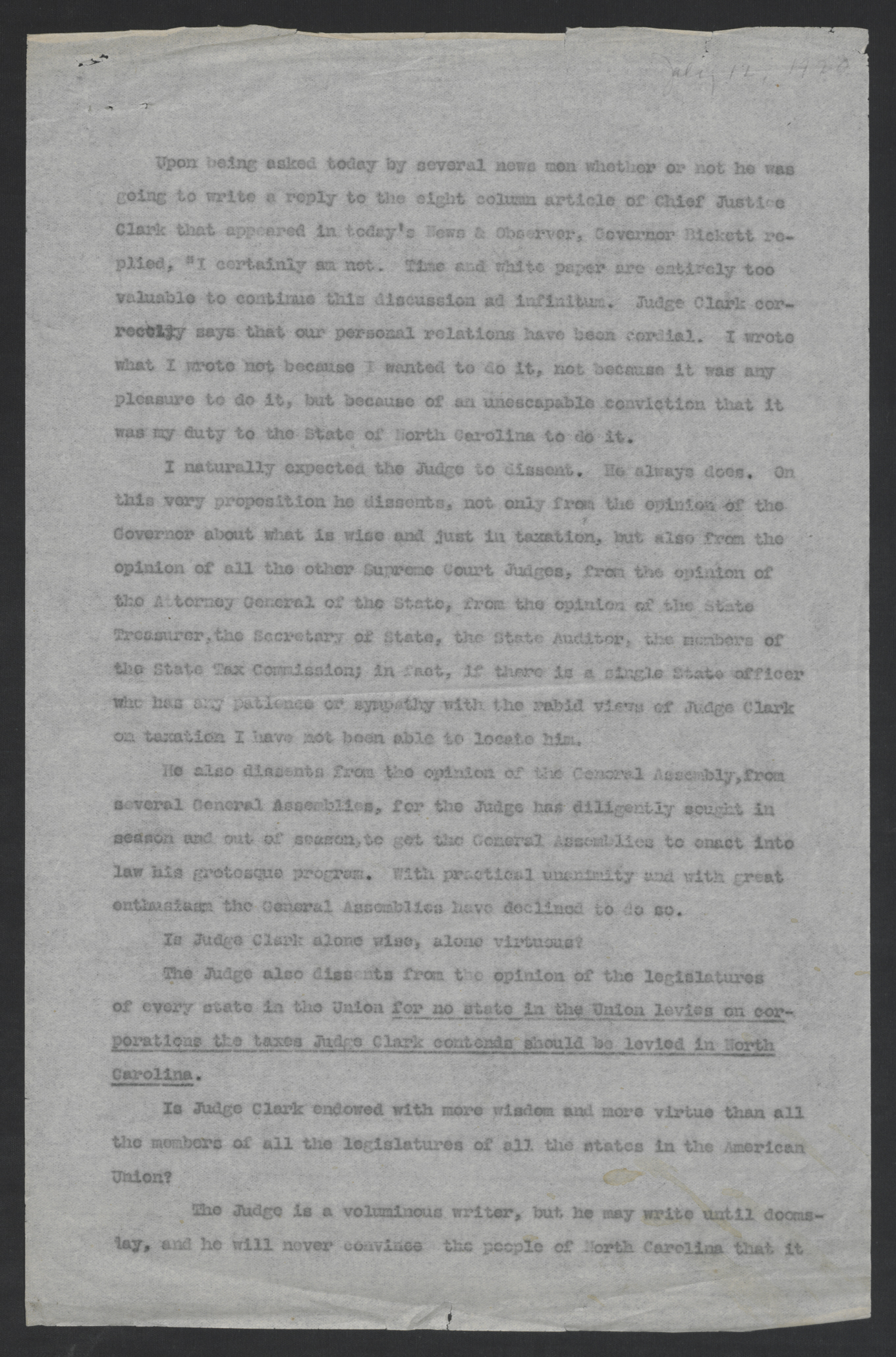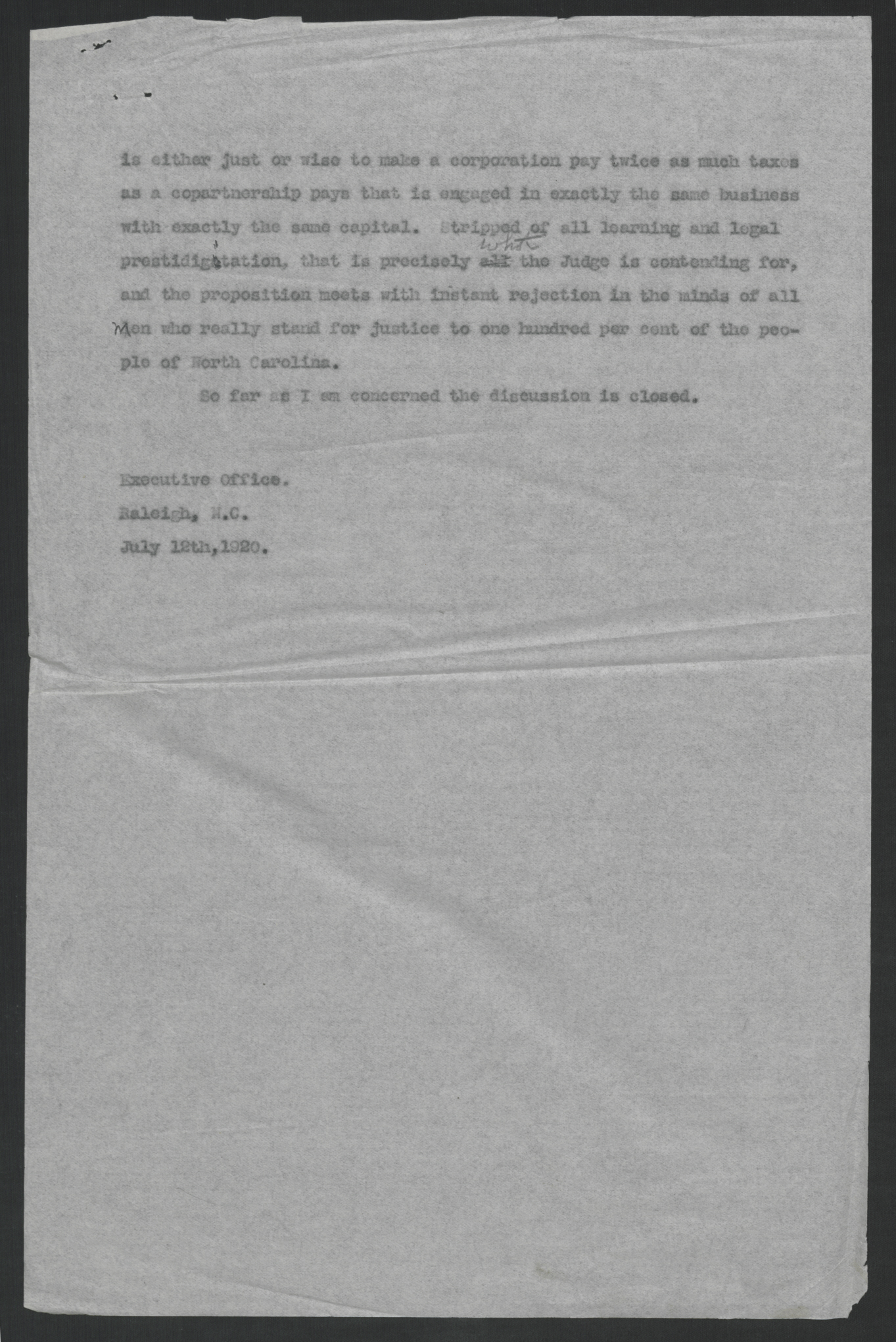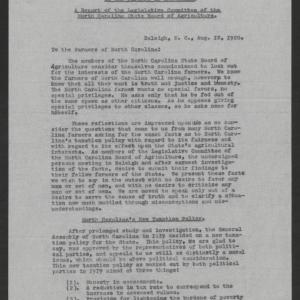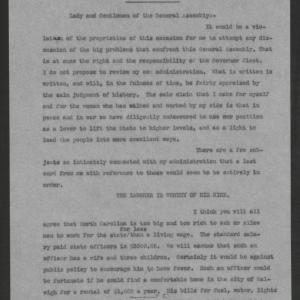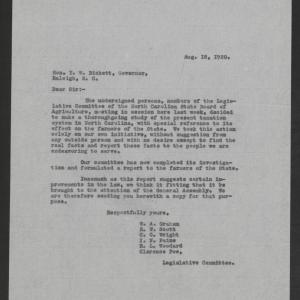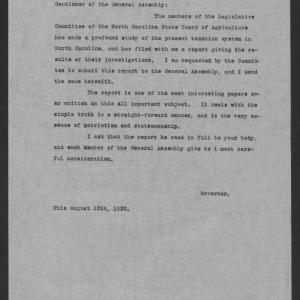July 12, 1920
Upon being asked today by several news men whether or not he was going to write a reply to the eight column article of Chief Justice Clark that appeared in today's News & Observer, Governor Bickett replied, "I certainly am not. Time and white paper are entirely too valuable to continue this discussion ad infinitum. Judge Clark correctly says that our personal relations have been cordial. I wrote what I wrote not because I wanted to do it, not because it was any pleasure to do it, but because of an unescapable conviction that it was my duty to the State of North Carolina to do it.
I naturally expected the Judge to dissent. He always does. On this very proposition he dissents, not only from the opinion of the Governor about what is wise and just in taxation, but also from the opinion of all the other Supreme Court Judges, from the opinion of the Attorney General of the State, from the opinion of the State Treasurer, the Secretary of State, the State Auditor, the members of the State Tax Commission; in fact, if there is a single State officer who has any patience or sympathy with the rabid views of Judge Clark on taxation I have not been able to locate him.
He also dissents from the opinion of the General Assembly, from several General Assemblies, for the Judge who has diligently sought in season and out of season, to get the General Assemblies to enact into law his grotesque program. With practical unanimity and with great enthusiasm the General Assemblies have declined to do so.
Is Judge Clark alone wise, alone virtuous?
The Judge also dissents from the opinion of the legislatures of every state in the Union for no state in the Union levies on corporations the taxes Judge Clark contends should be levied in North Carolina.
Is Judge Clark endowed with more wisdom and more virtue than all the members of all the legislatures of all the states in the American Union?
The Judge is a voluminous writer, but he may write until doomsday, and he will never convince the people of North Carolina that it is either just or wise to make a corporation pay twice as much taxes as a copartnership pays that is engaged in exactly the same business with exactly the same capital. Stripped of all learning and legal prestidigitation, that is precisely what the Judge is contending for, and the proposition meets with instant rejection in the minds of all men who really stand for justice to one hundred per cent of the people of North Carolina.
So far as I am concerned the discussion is closed.
Executive Office.
Raleigh, N.C.
July 12, 1920.

